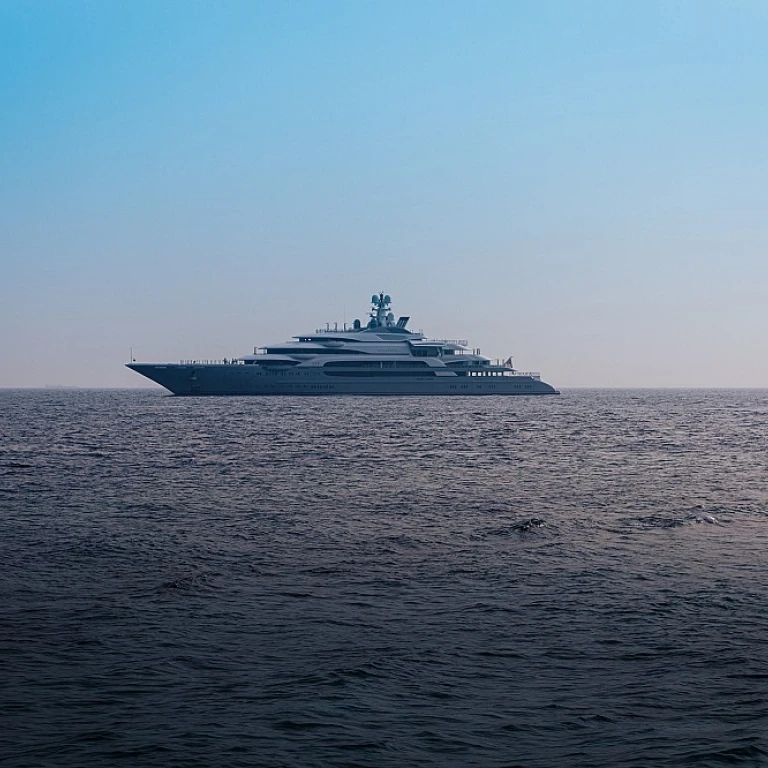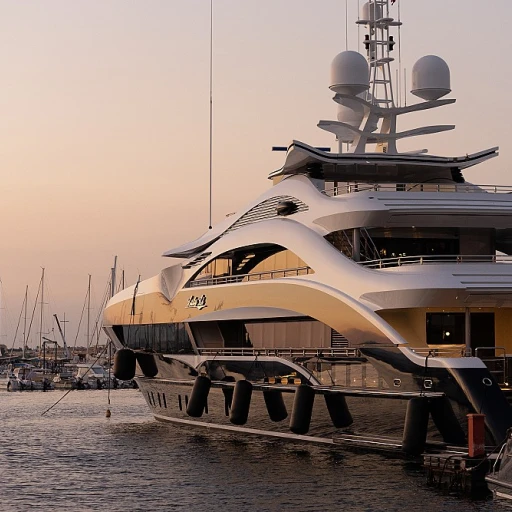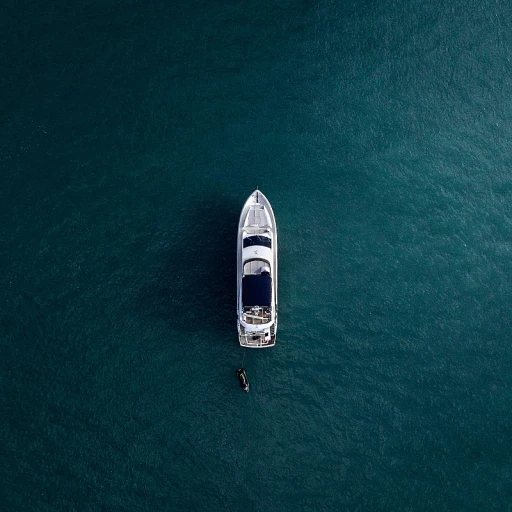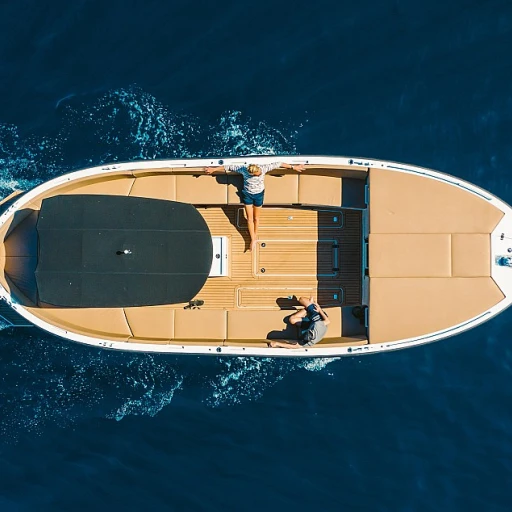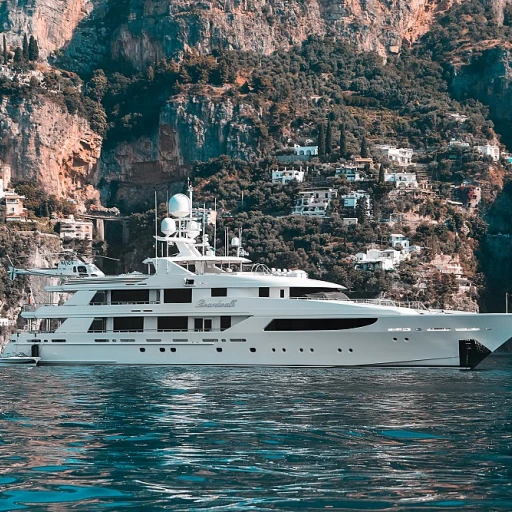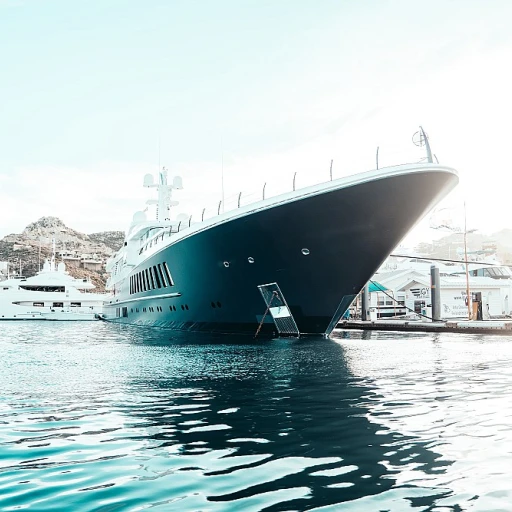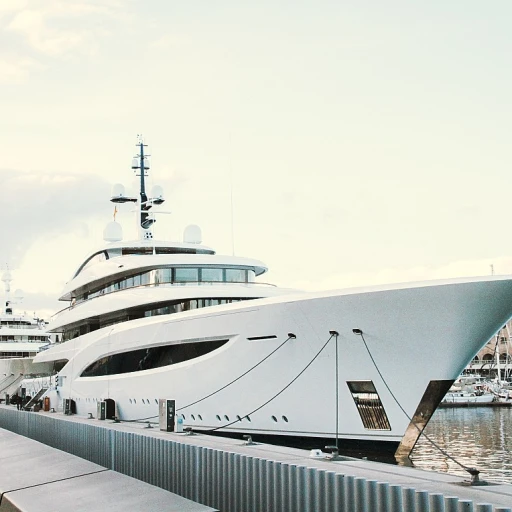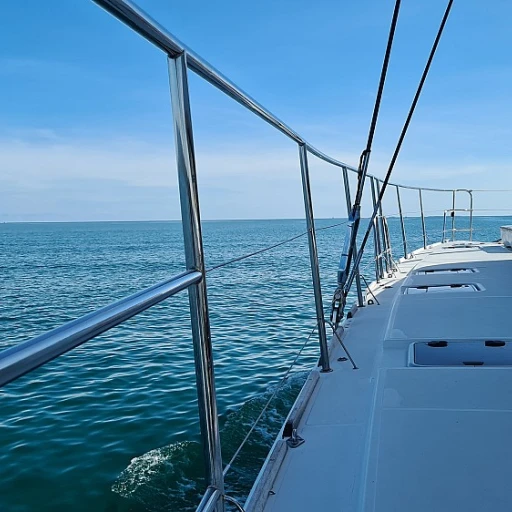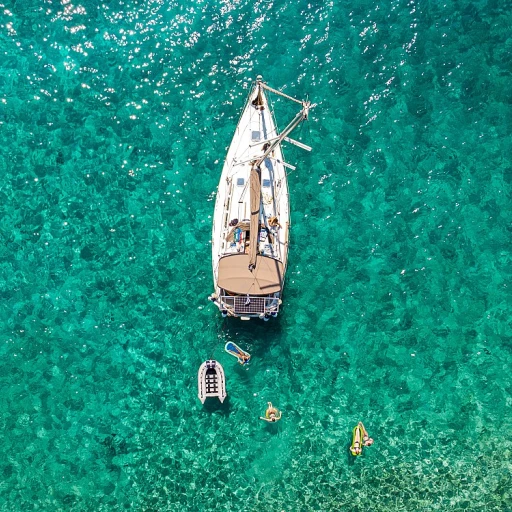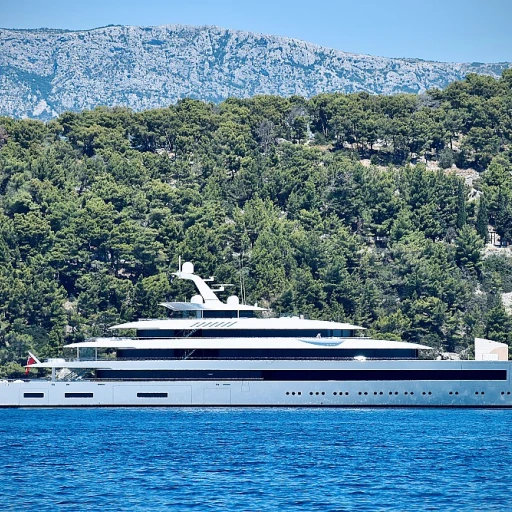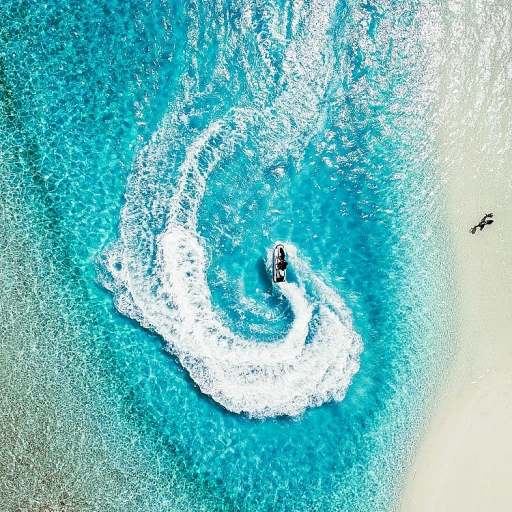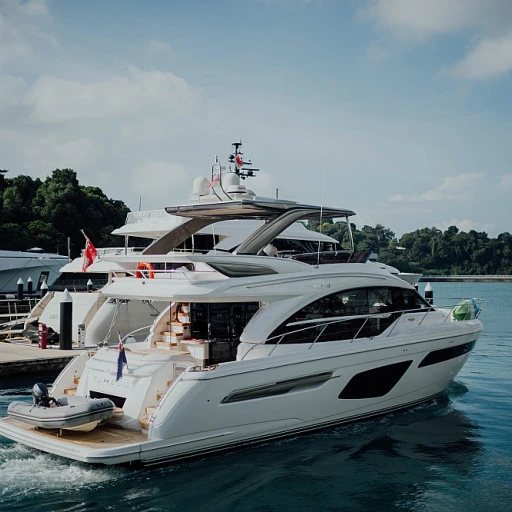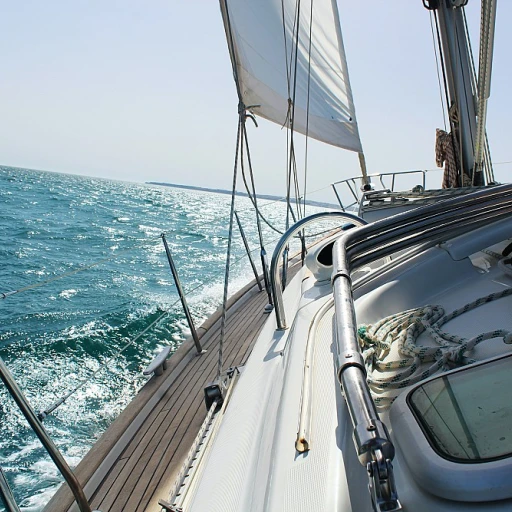
Understanding the Importance of Boat Lights
Essential Role of Lighting in Maritime Safety
Navigating the serene but unpredictable waters at night brings an additional layer of complexity to any voyage. Whether you're on a pontoon boat for a leisurely cruise or a fishing vessel set for night fishing, the necessity of proper lights cannot be overstated. Boat lights are crucial for ensuring visibility and safety for all marine vessels during night navigation. In the world of boating, navigation lights serve distinctive purposes. They signal a vessel's presence, size, and heading during low visibility conditions, effectively acting as the eyes of the boat. Without these navigation aids, even a seasoned sailor could face challenges determining the position and movements of other ships in the dark. Marine lighting isn't just about aesthetics or attracting fish, although they are important for enhancing any fishing experience. Without adequate lighting, including the imperative stern light and anchor light, a vessel risks being invisible to others. This can lead to dangerous situations, especially in busy marine corridors. Today's boating enthusiasts have a plethora of options to choose from, such as the ever-popular LED lights and courtesy lights. These technological advancements offer enhanced luminosity, energy efficiency, and a longer lifespan, all of which are critical to night-time safety and navigation. To fully appreciate the importance of boat lights, it is also essential to understand the types and functions they serve. Illuminating your vessel properly paves the way for safer voyages, allowing you to focus on the journey ahead. To learn more about optimizing your boat's safety features, including installing a durable top for protection against the elements, you might want to explore this 4 Bow Boat Bimini Top for your vessel's deck.Types of Boat Lights and Their Functions
The Different Functionalities of Boat Illumination
Navigating a vessel during the night requires precise illumination to ensure safety. Different types of boat lights serve distinct functions, each contributing crucially to successful maritime navigation. Whether you're operating a fishing boat, pontoon, or a larger ship, understanding the difference between these lights is vital. Anchor Lights These are round, bright white lights used when vessels are anchored away from a dock during night hours. Their primary purpose is to signal the stationary status of the boat to other nearby mariners, preventing collisions. Typically, the round white anchor light is placed high on the masthead. Navigation Lights Navigation lights are essential for signaling a boat's position, direction, and status to other vessels during the night. These include the red and green lights found on navigation light assemblies, which indicate a boat's port and starboard sides, respectively. Proper navigation light placement is crucial to avoiding maritime incidents and ensuring compliance with international marine regulations. Stern and Masthead Lights These white lights are essential when your boat is underway. A stern light, positioned at the rear, and a masthead light, located towards the front, make your vessel visible to others over long distances. They ensure that your intent to move is clear to all surrounding marine traffic. Deck and Courtesy Lights While these lights might not seem as critical at first glance, their role in aiding visibility on deck cannot be overstated. Improved visibility reduces potential hazards for crew members maneuvering the deck during evening hours. For additional coverage and utility, deck lights offer broader illumination, while courtesy lights can be more subtle, providing necessary light without impinging on night vision. Innovations and Costs LED technology has revolutionized marine lighting by improving energy efficiency and offering a longer lifespan. The price of these advanced lighting systems can vary depending on factors such as brand, features, and where you purchase them, including popular platforms like Amazon. While LED lights may initially require a higher investment, their longevity and effectiveness during night navigation often justify the expense. Enhancing your boat with the appropriate lighting can not only ensure compliance with maritime regulations but also significantly improve safety and enhance its overall utility during nighttime operations. With technological advancements, investing in quality lighting systems provides lasting benefits, making it essential for any vessel owner to select the right equipment for their specific needs. Learn more about optimizing your boat's features, such as installing a 4 Bow Boat Bimini Top, to protect against varying weather conditions.Regulations and Compliance for Night Navigation
Regulations to Follow for Safe Night Navigation
Navigating a boat at night requires compliance with various regulations to ensure the safety of all vessels on the water. Understanding the rules for boat lighting is crucial not only for safety but also to avoid fines and penalties.
Navigation lights are a key requirement for night navigation. Power-driven boats, like pontoon boats, must display the correct lights between sunset and sunrise, as well as in conditions of reduced visibility. Typically, this includes a masthead light, sidelights in red and green, and an all-round white stern light. The placement and color of these lights help signal the vessel's presence and direction to other marine traffic.
The International Regulations for Preventing Collisions at Sea (COLREGs) provide guidelines that are universally recognized, serving as an essential reference for maintaining proper boat navigation. These rules detail the degrees of visibility for navigation lights and specify their function, ensuring that lights serve their purpose in different situations.
Ensuring proper lighting on deck and employing courtesy lights can also help promote safe maneuvering. Furthermore, the advent of LED lighting technology offers enhanced visibility and energy efficiency, allowing vessels to comply with regulations while maintaining optimal performance.
Additionally, different regions may have local lighting requirements, and it's important for boat owners to stay informed about these nuances. For instance, in some areas, particular types of fishing vessels might have specific lighting rules to prevent conflict with general marine operations.
Overall, adherence to these regulations is vital for safeguarding lives and property while enjoying night-time cruising. For further insights into navigating challenging maritime conditions, visitors can explore more resources on specialized winter yachting here.
Innovations in Boat Lighting Technology
Advanced Lighting for Better Night Vision
In recent years, the yacht industry has embraced cutting-edge technology to enhance navigation during night-time journeys. Advancements in LED technology have revolutionized lights for boats, making them energy-efficient and brighter than traditional options. These LEDs, available in a variety of forms like strip lights, courtesy lights, and stern lights, offer excellent visibility without compromising battery life.
LED lights also come in a spectrum of colors relevant to the maritime world. Red and green navigation lights are crucial for determining a vessel's direction, while white masthead and stern lights are essential for visibility in distance. With their extended lifespan and reduced maintenance costs, LEDs are becoming a standard in marine lighting systems, even in demanding environments like night fishing or deep-sea excursions.
Bluetooth And Smart Controls
Another notable innovation is the integration of smart technology into marine lighting systems. Vessels can now be equipped with Bluetooth-enabled light controls, allowing for seamless adjustments in brightness and color through a smartphone app. This not only improves user convenience but also promotes safety by enabling quick responses to changing conditions at sea.
Solar-Powered Solutions
With sustainability being a growing concern in the yacht industry, solar-powered lights have emerged as an eco-friendly solution for marine vessels. These lights harness sun energy during the day to power navigation lights at night, reducing the reliance on the vessel's power supply and minimizing the carbon footprint. Particularly advantageous for long voyages, solar lighting can be an excellent choice for pontoon boats and small ships.
Emerging Trends in Deck and Anchor Lights
Deck lights have also seen significant improvements, with designs optimized for better illumination of the yacht's exterior areas. This enhances safety on board, ensuring that all parts of the vessel are well-lit and reducing the risk of accidents. Similarly, anchor light technology has advanced, with round white LED lights becoming a popular option, maintaining visibility whole moored at night.
These innovations not only provide functional benefits but also add a touch of luxury to a vessel's overall aesthetic. The development of stylish, functional lights has made it easier than ever to enjoy a well-lit cruise, regardless of the light's price or availability on platforms like Amazon.
Challenges in Night-time Navigation
Overcoming the Obstacles of Night Navigation
Navigating under the veil of darkness presents distinct challenges, demanding both expertise and technology. Without prompt and effective illumination, potential risks can escalate rapidly for both small boats and larger vessels.- Limited Visibility: The primary struggle is limited visibility. Even with well-positioned boat lights, the reach is only as far as the light can extend. This can make identifying distant objects or changes in the water's surface a complex task.
- Environmental Hazards: Marine environments are laden with their own set of challenges. From stern to bow, navigating around unpredictable currents or unmarked obstacles quickly escalates in difficulty at night. In such scenarios, integrating red and green navigation lights helps demarcate your vessel's movement and position accurately.
- Technological Reliance: As bright as LED solutions can be, reliance on technology demands meticulous upkeep, especially for anchor lights or stern lights, which can be pivotal during night fishing or mooring. Deck lights play a crucial role here, casting necessary illumination on operational tasks.
- Cost Considerations: Incorporating advanced lighting systems can entail significant costs. From basic courtesy lights to high-end marine navigation solutions, prices can range extensively, influencing a pontoon boat or fishing vessel's budget.
Tips for Effective Use of Boat Lights at Night
Maximizing the Efficiency of Your Boat Lights
To thrive in night-time navigation, ensuring the effectiveness of your boat lights is crucial. Proper use not only enhances visibility but also safeguards against potential hazards, facilitating a safer journey across the waters.- Choose the Right Lighting: Selecting appropriate lighting for your specific vessel type is essential. Whether it's a pontoon boat or a fishing vessel, make sure the lights, including red and green navigation lights, stern lights, and a round white light, are fitted correctly to avoid obscuring visibility.
- Invest in Quality: While the initial price might seem higher, investing in quality LED or marine-grade lights can pay off in the long run. Lighting brands available on platforms like Amazon offer varied choices that cater to diverse needs. A reliable set of LED navigation lights ensures longevity and brightness without frequent replacements.
- Regular Maintenance: Conducting regular checks on your boat lights helps in maintaining peak performance. Clean lenses and check for any corrosion or broken bulbs to make sure every light, from the masthead to the anchor light, operates flawlessly.
- Comply with Regulations: Keep up with the necessary guidelines to ensure your lights are compliant. This not only avoids any potential fines but ensures you adhere to safety measures. The guidelines dictate the use of white lights for boats, particularly power-driven vessels, to maintain a clear line of sight for other ships and vessels.
- Optimize for Fishing: If night fishing is your aim, customize your lighting setup to include deck lights that do not interfere with your ability to spot fish. Oil lamps or subdued courtesy lights can keep disturbance to a minimum while illuminating the deck.
- Position Lights Appropriately: Correct positioning on the bow and stern ensures effective visibility. Stern lights and pontoon boat lights should be positioned at a height where they're not obstructed by other parts of the vessel.

